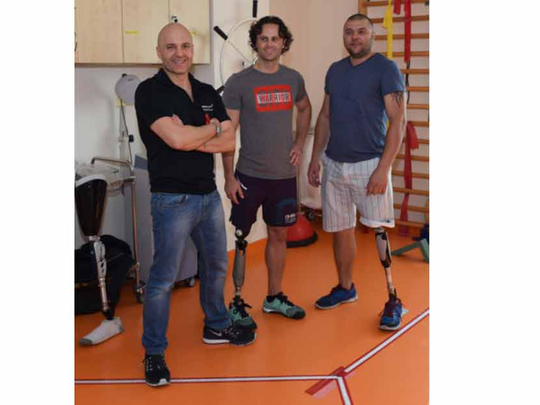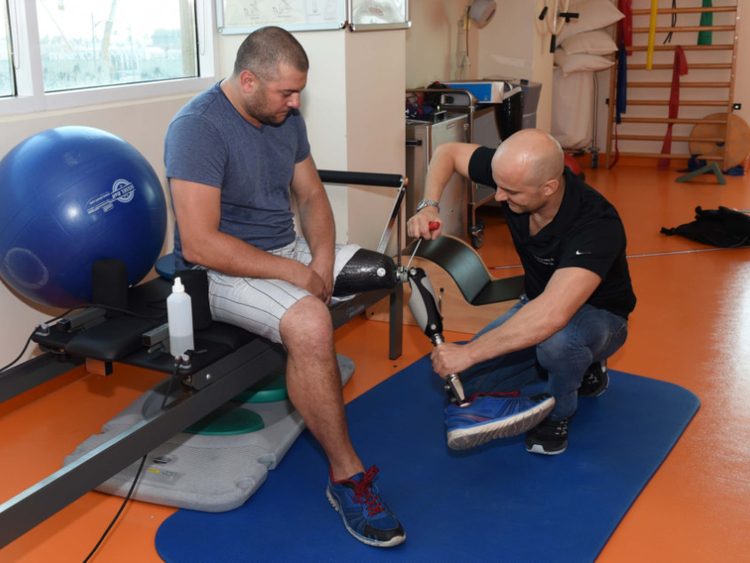
DUBAI A world-ranking para-athlete who has his eyes set on the Rio 2016 Paralympics, air dashed to Dubai from South Africa last week to get a new leg.
Anthony Butler, 40, from the South African coastal town of Natal, said he was rendered a left-leg-above-knee amputee following a horrific car accident, but the good news was that he was on his feet again, raring to go, thanks to robust prosthetics he had been fitted with.
Active lifestyle
The Paralympic hopeful, who has completed the A and B short put qualifier rounds, said Dubai’s Mediclinic Beach Road had replaced an old prosthetics with a Mauch knee to enable him to keep pace with his active lifestyle.
Charl Stenger, Mediclinic’s orthotics and prosthetics expert, said Butler’s leg was capable of withstanding extreme impact. “The patient has incredible fitness levels and muscles. The Mauch knee gives him the functions he needs and is very reliable. It has a long shelf life and should last him for three years at least. It is well suited for activities involving running, track and field.”
A former golfer, Butler said he was motivated to become a para-athlete as he wanted to take part in the Paralympics and also run around with his two daughters, aged eight and ten.
He said he chose to get treated in Dubai not only because of the available expertise but also from a cost point of view. “The prosthetics here cost a third of what they do in South Africa,” he said, adding Mediclinic had also extended help to get him going.
Another patient, American Eli Williams, 34, who has been fitted with a Very Good Knee (VGK), said he too had opted to get new prosthetics in Dubai because of its affordability. A right leg amputee since he was a child, Williams said: “Prosthetics is not covered by insurance, so the cost matters. Prosthetics in Dubai are around four times cheaper than in the US.”
Stenger said the waterproof VGK allowed Williams multiple functions like walking at different speeds and safely moving up and down the stairs or hills.
“Just having the ability for the knee to identify what is safe is a huge game changer,” said Williams.













